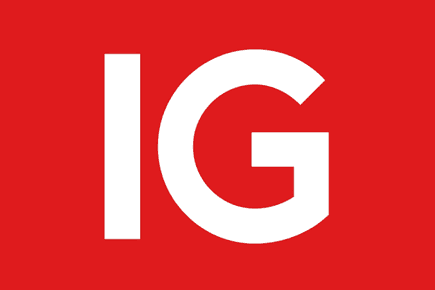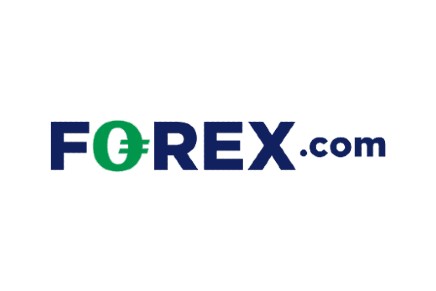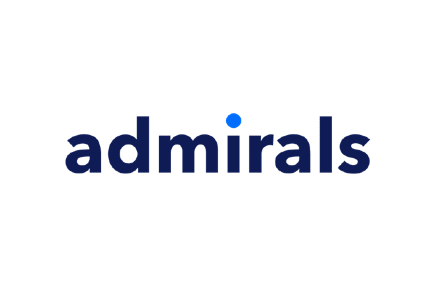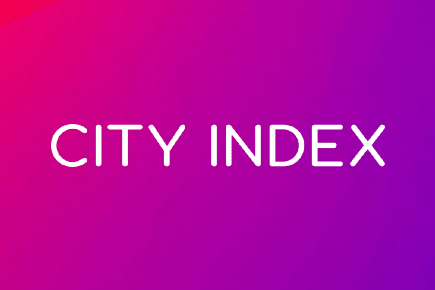If you are looking to trade forex, you may be wondering which are the best forex brokers in the UK. I have managed to take out the guesswork by performing hours of meticulous research into the best UK forex brokers and the best forex trading platforms, with the highest safety regulations for every level of trader, from complete beginners to skilled traders and institutions.
Trading forex is tightly regulated by the FCA (Financial Conduct Authority) in the UK, and therefore you can rest assured that all the forex trading platforms I have listed here fall under that regulation.
Also consider: My guide on how to start forex trading
Browse the best forex trading platform for September 2025
See my list of the best UK forex brokers below, where I give an overview of each FX broker, their pros, cons and fees.
Top forex brokers UK at a glance
IG has managed to retain its spot as the best forex broker in the UK with an excellent range of CFD accounts from which retail investors can trade forex, as well as a comprehensive suite of tradable assets, research tools, and educational material accessible on the trading platform.
In addition to this, IG is also competitive with their fees while retaining excellent levels of quality with a highly advanced and intuitive forex trading platform. Users can also rely on excellent levels of 24/7 customer service via chat, phone, email, and social media.
For forex traders looking to expand their knowledge, the trading account at IG also provides access to IG’s guide for forex traders. This includes details on forex and what it entails, how to trade currencies, and the benefits of trading forex.
IG is regulated by the FCA. Spread bets and CFDs are complex instruments and come with a high risk of losing money rapidly due to leverage.
Pros
- Excellent web platform for trading
- Comprehensive educational tools
- Low trading fees
- Tight spreads
- Good market analysis
Cons
- High inactivity fee
- Lack of social or copy trading
IG forex fees
- EUR/USD – Standard Spread 0.60 pips
- Trading Cost – Standard Spread USD 6
- EUR/USD – Raw Spread 0.85 pips
- GBP/USD – Raw Spread 1.40 pips
- USD/JPY – Raw Spread 0.94 pips
- Trading Commission Fees included in spread
Features at IG I like include:
- 80+ currency pairs
- Technical analysis on charts
- Real-time streaming news
- Negative balance protection
- Offers GBP/USD, EUR/USD and USD/JPY on the weekend
- MetaTrader 4 (MT4)
- Guaranteed stop loss
- Demo account
Spread bets and CFDs are complex instruments and come with a high risk of losing money rapidly due to leverage. 69% of retail investor accounts lose money when trading spread bets and CFDs with this provider. You should consider whether you understand how spread bets and CFDs work, and whether you can afford to take the high risk of losing your money.
The thriving community of traders utilising the eToro trading platform makes it the perfect forex trading account for copy trading, providing scope to mirror the trading activities of experienced traders with proven track records. Copied traders that use eToro are offered an incentive to continue making successful trades, turning a profit for themselves and, in turn, anyone copying their trades.
eToro is a great option for people just venturing into the forex space, with more than 3 million traders available to copy and options to filter by returns, popularity among copiers, and the number of forex markets they are active in. Copy Trading can help increase profitable trades by relying on the experience and knowledge of other traders.
In addition to this, eToro is highly competitive when it comes to fees and range of currency pairs, with over 45 pairs available to choose from, all available from both the web and your mobile device.
Pros
- Copy-trading with more than 3 million active traders
- Good selection of trading tools
- Large selection of investments
Cons
- Can only trade in USD so FX fees apply
eToro forex trading fees
- EUR/USD – Standard Spread 1.00 pips
- Trading Cost – Standard Spread USD 10
- EUR/USD – Raw Spread 1.00 pips
- GBP/USD – Raw Spread 2.00 pips
- USD/JPY – Raw Spread 1.00 pips
- Trading Commission Fees included in spread
eToro features I like:
- 47+ currency pairs
- Demo account
- Guaranteed negative protection
{etoroCFDrisk}% of retail investor accounts lose money when trading CFDs with this provider. You should consider whether you can afford to take the high risk of losing your money. Your capital is at risk. Other fees apply. For more information, visit etoro.com/trading/fees

Plus500 has a slick, intuitive web and mobile platform with an excellent range of tools to trade in various asset classes via CFDs. In terms of fees, the commission-free trading and low non-trading fees make this forex broker highly competitive.
For forex traders who conduct their trades on the move, the Plus 500 mobile app is compatible with Apple and Android devices as well as smartwatches. From here, traders can access all the great functionality and in-depth analysis, as well as execute trades and manage their trading accounts. There are also several risk management tools to help minimise losses.
Plus500 also offers a free demo account, so traders can test the platform completely risk-free. There are over 60 forex pairs that can be traded as CFDs, with leverage for trading and 24/7 support.
Plus500 is a publicly-traded company that is listed on the London Stock Exchange (LON: PLUS) as well as being regulated by the Financial Conduct Authority to offer forex trading to UK traders.
Pros
- Heavily regulated across the globe
- More than 2,500 CFDs across multiple asset classes
- Easy to use platform
Cons
- No customer support via phone
- Limited education
Plus500 forex trading fees
Plus500’s fees can be complicated.
Fee charges for Plus500 include: inactivity fee, overnight fee, currency conversion fee, and guaranteed stop fee.
We recommend reading our Plus500 review which includes a full breakdown of all Plus500 fees.
Plus500 features I like:
- Guaranteed stop
- Trailing stop
- Stop limit and stop-loss price levels
- Traders sentiment
- Price alerts
CFDs are complex instruments and come with a high risk of losing money rapidly due to leverage. 80% of retail investor accounts lose money when trading CFDs with this provider. You should consider whether you understand how CFDs work and whether you can afford to take the high risk of losing your money.
At Forex.com, forex traders have the choice of two mobile trading platforms, MT4 and their own proprietary mobile app. While many traders will be familiar with MT4, the proprietary platform is also worth considering as it comes with excellent tools and navigation, including place market, limit, stop, stop trailing, and COC orders.
Forex.com also offers traders the security of knowing they are listed on the New York Stock Exchange and provide access to over 80 currency pairs, some of which you won’t find elsewhere.
This isn’t a low cost broker, but still has decent spreads that start at 0.8%.
Pros
- Over 80 currency pairs
- Extensive range of features
- Good mobile app
Cons
- Inactivity fee
Forex.com trading fees
- Standard spread 1 pip
- Zero commissions
Forex.com features I like:
- Good range of platform options
- Advanced charting tools
- Demo account
- Real-time view of pricing
CFDs are complex instruments and come with a high risk of losing money rapidly due to leverage. 78% of retail investor accounts lose money when trading CFDs with this provider. You should consider whether you understand how CFDs work and whether you can afford to take the high risk of losing your money.
Admiral Markets stands out as a reliable platform for forex traders, offering access to 80+ currency pairs with competitive spreads and a user-friendly experience via MetaTrader 4 or MetaTrader 5. Advanced trading tools like MetaTrader Supreme Edition and StereoTrader enhance functionality, making it a strong contender for seasoned traders. The platform also supports virtual private servers and parallels for macOS users, ensuring a smooth trading experience.
Admiral’s Forex trading is commission-free, with only spreads and swaps to consider. The spreads are tight, and the FX fees for currency conversion are among the lowest at 0.3%, keeping trading costs manageable. Additionally, the option to fund accounts in 10 different base currencies helps reduce conversion fees.
While Admiral Markets excels in tools, execution, and costs, beginners may find the platform overwhelming due to its advanced features and steep learning curve. It’s best suited for experienced forex traders who value robust tools and responsive customer support.
Verdict: A great choice for forex traders seeking advanced tools, tight spreads, and excellent customer service. 4/5
CFDs are complex instruments and come with a high risk of losing money rapidly due to leverage. 76% of retail investor accounts lose money when trading CFDs with this provider. You should consider whether you understand how CFDs work and whether you can afford to take the high risk of losing your money.
City Index has one of the lowest spreads available as one of the best UK forex brokers, making them an excellent choice for beginners. They also have a low initial deposit of only £100 as well as a comprehensive suite of training resources to help beginners all the way through to advanced forex traders. This includes webinars and videos, articles, platform tutorials, risk management tools, daily market analysis, and training.
There are three main account types on offer including; Trader, Premium Trader, and Professional. This illustrates City Index’s commitment to catering to all levels of traders, and their free demo account offers scope to try the service without any risk to your personal funds.
When traders open an account at City Index, they can access a range of support features, including a welcome pack and a call to walk them through the platform. In addition to this, regular market intelligence emails and trading ideas can help develop skills for trading forex.
Forex traders at City Index can access 84 global FX pairs with tight spreads of 0.5 points.
Pros
- Low forex fees
- Quick and easy account opening
- Excellent research tools
- Excellent educational material
Cons
- High stock CFD trading fees
City Index forex trading fees
| FX Pair | Minimum spread | Typical spread | Margin from* |
| EUR/USD | 0.5 | 0.8 | 3.33% |
| AUD/USD | 0.5 | 0.9 | 5% |
| USD/JPY | 0.6 | 0.8 | 3.33% |
| GBP/USD | 0.9 | 1.8 | 3.33% |
| EUR/GBP | 0.9 | 1.7 | 3.33% |
City Index features I like:
- Economic calendar
- Platform walkthroughs
- Tight spreads
- Research portal
CFDs are complex instruments and come with a high risk of losing money rapidly due to leverage. 69% of retail investor accounts lose money when trading CFDs with this provider. You should consider whether you understand how CFDs work and whether you can afford to take the high risk of losing your money.
List of the best forex brokers UK: FCA Regulated
Below is my authorised list of the best forex brokers for UK investors regulated by the FCA.
| Forex Broker | UK Residents Accepted | Regulated by the FCA | Minimum Deposit |
|---|---|---|---|
| ActivTrades | Yes | Yes | $500 |
| Admiral Markets | Yes | Yes | $100 |
| Capital.com | Yes | Yes | 20 |
| City Index | Yes | Yes | 100 |
| CMC Markets | Yes | Yes | $0 |
| eToro | Yes | Yes | $10 |
| FOREX.com | Yes | Yes | $100 |
| FXCM | Yes | Yes | $50 |
| HFM (HF Markets) | Yes | Yes | $5 |
| HYCM | Yes | Yes | $100 |
| IG | Yes | Yes | 250 |
| Interactive Brokers | Yes | Yes | $0 |
| IronFX | Yes | Yes | $100 |
| LegacyFx | Yes | Yes | $500 |
| Pepperstone | Yes | Yes | $200 |
| Saxo Bank | Yes | Yes | $2000 |
| Swissquote | Yes | Yes | 1000 |
| Tickmill | Yes | Yes | $100 |
| Trade Nation | Yes | Yes | $0 |
| Vantage | Yes | Yes | $200 |
| XTB | Yes | Yes | $0.00 |
What is forex trading?
Forex trading is the largest and most liquid financial market in the world, involving the changing of one currency into another, often with the anticipation of making a profit in doing so.
The foreign exchange market, also known as the FX market or forex market, is the global market for the exchange of one currency for another. This can be conducted for commerce, trading, or tourism reasons, and forex is usually traded as exchange rate pairs. An example of an exchange rate pair or currency pair would be GBP/USD which is the pair for trading the Great British Pound against the U.S. dollar.
In contrast to a stock market, with forex trading, there is no central marketplace. Currency trading is conducted electronically over the counter (OTC) via computer networks among traders from across the globe. This means the market is open 24 hours a day for five and a half days a week, with price changes constantly moving. This allows for speculative opportunities for trading one currency against another for professional traders and retail investors.
How to trade forex
There are two ways to trade currencies. The first is to earn the interest rate differential between two currencies. This works by buying the currency with the higher interest rate and shorting the currency with the lower interest rate.
The other way to trade currencies is to profit from changes in the exchange rate.
These fluctuations in the price of a currency will depend on supply and demand from banks participating in the spot market. These large trade flows prevent rogue traders from having any influence on the price of any given currency, which in turn helps to provide some transparency for investors.
MetaTrader 4 (MT4)
MetaTrader 4 (MT4) is a trading platform commonly associated with forex trading, but it can also be used to trade a range of other markets via CFDs, including indices, cryptocurrencies, and commodities.
See my guide to the best MT4 brokers offering the MetaTrader 4 forex trading platform.
What influences price changes in the FX market?
The value of any particular currency is based on supply and demand; however, there are some currencies, such as the Chinese renminbi, that have a fixed exchange rate. Currencies without a fixed exchange rate are known as floating currencies, and this is the case for most advanced economies, including the UK pound.
Floating currencies are constantly moving up and down in value against other currencies. These are usually small changes in movement, as small as a fraction of a cent higher or lower at the end of a trading day. However, this can change dramatically at the hands of extreme economic or political news. In this instance, there can be wild swings in price, such as a 10% fall in value the day after the UK voted to leave the European Union. This encouraged traders to sell the pound quickly, decreasing its demand and thus its value.
Another example of a market influencer are economic developments such as data that reveals the economy is growing faster than predicted, which in turn could lead to the Bank of England increasing interest rates. Higher interest rates lead to a greater return on your money and therefore increase demand, boosting its value. This is how financial markets ebb and flow in line with economic, financial, and political news.
The best forex trading platforms will often include live news feeds in their suite of tools to enhance retail traders capacity for profit. This is also the reason why mobile trading is so important: traders can react instantly to changes that may affect the price of currencies.
Why is FX trading so popular?
Forex trading is arguably one of the most popular forms of investment, with a daily average trading volume of about $5 trillion.
The main reason for this demand among investors is that forex is one of the largest financial markets in the world. The high volume and number of different currencies being traded offer a decent amount of liquidity.
However, the downside to this amount of liquidity that potential investors should be aware of is that, while you may be able to generate a return by trading forex, there’s always the potential of losing value on your investment, too.
Indeed, most platforms will report that the majority of retail investment accounts lose money when trading CFDs and forex.
There are things you can do to mitigate this risk in your investment strategy. For example, building up your knowledge of the market can help you make informed investment decisions.
Additionally, the fact that the forex market is available for trading 24 hours a day for five and a half days of the week means individual investors can react quickly to market influences, such as political and economic news.
Unlike stocks and shares, where time in the market is typically more of an influence on your success than timing the market, these rapid price movements mean gains and losses are immediate.
The forex market also benefits from leveraged trading, whereby investors can open a position on a larger portion of the forex market.
This increased exposure can magnify your gains by this margin without you having to invest the same amount of money that would usually be needed for such a trade at the outset.
However, you should bear in mind that this also means that any losses you make will be magnified in the same way. Therefore, it is important to fully understand how leveraged trading works before you invest.
Remember: no investment is risk-free, and you may not get back as much as you invested, regardless of the strategy you use.
Please note: The value of your investment can go down as well as up and you may not get back the full amount you invested. Past performance is not a reliable indicator of future performance.
Is FX trading legal in the UK?
Yes, FX trading is legal in the UK, although each platform will have its own level of regulation, and this is always worth checking. On the whole, forex brokers in the UK are regulated by the FCA (Financial Conduct Authority), which is responsible for ensuring that all UK forex brokers are licenced and are providing a trading environment that is in the best interests of the traders that use it. Regulation by the Financial Conduct Authority also provides protection for your funds under the Financial Services Compensation Scheme (FSCS), which aims to compensate traders for the loss of their trading funds in the event the broker runs into insolvency issues.
In addition to this, the FCA requires that a multi-asset trading platform keep its operating capital separate from that of its traders to ensure this is protected should the platform experience financial difficulty.
However, it may be the case that some forex brokers are regulated by a similar body outside of the UK. These regulators will be responsible for the same level of regulation as the FCA and can include:
- Securities and Exchange Commission (SEC) and the National Futures Association (NFA) in the USA
- Australian Securities and Markets Authority (ASIC) in Australia
- European Securities and Markets Authority (ESMA) in the European Union
- Autorité des Marchés Financiers (AMF) in France
- Comisión Nacional de Mercado de Valores (CNMV) in Spain
- The Financial Services Agency (FSA) in Japan
- The Securities and Futures Commission (SFC) in Hong Kong
This level of regulation should be considered the minimum when selecting a forex trading platform in order to ensure the correct levels of protection for you and your funds. This can be confirmed on the FCA’s own website, where they supply a register of all forex brokers in the UK who adhere to these standards.
Despite these regulations, it is crucial to understand that trading CFDs, FX, and cryptocurrencies comes with a high degree of risk, and providers are required to publish the percentage of retail investor accounts that lose money when trading CFDs on their trading platform.
Forex broker FAQs
Will I be taxed on my forex trading profits?
What is the difference between CFDs and forex?





